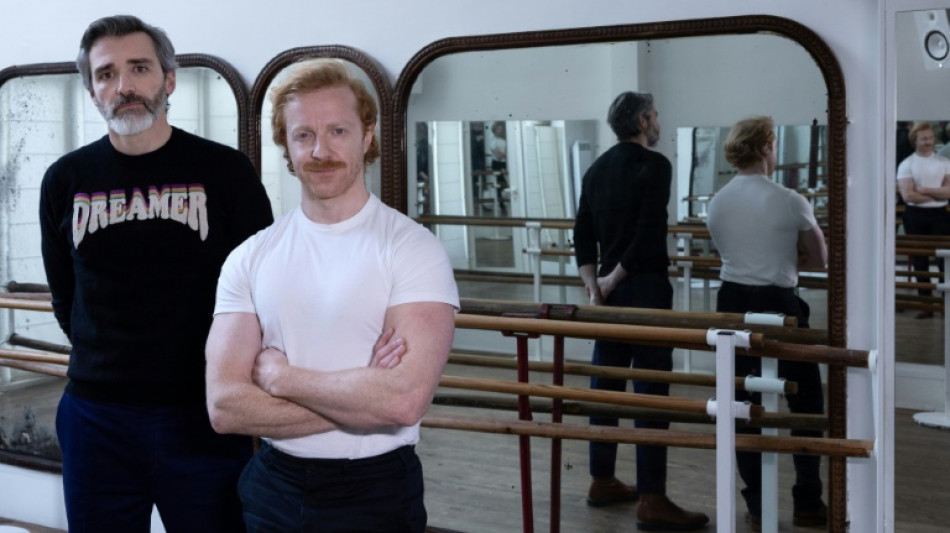
-
 New lawsuit alleges Spotify allows streaming fraud
New lawsuit alleges Spotify allows streaming fraud
-
Stocks mostly drop as tech rally fades

-
 LIV Golf switching to 72-hole format in 2026: official
LIV Golf switching to 72-hole format in 2026: official
-
Manchester City have become 'more beatable', says Dortmund's Gross

-
 Merino brace sends Arsenal past Slavia in Champions League
Merino brace sends Arsenal past Slavia in Champions League
-
Djokovic makes winning return in Athens

-
 Napoli and Eintracht Frankfurt in Champions League stalemate
Napoli and Eintracht Frankfurt in Champions League stalemate
-
Arsenal's Dowman becomes youngest-ever Champions League player

-
 Cheney shaped US like no other VP. Until he didn't.
Cheney shaped US like no other VP. Until he didn't.
-
Pakistan edge South Africa in tense ODI finish in Faisalabad

-
 Brazil's Lula urges less talk, more action at COP30 climate meet
Brazil's Lula urges less talk, more action at COP30 climate meet
-
Barca's Lewandowski says his season starting now after injury struggles

-
 Burn urges Newcastle to show their ugly side in Bilbao clash
Burn urges Newcastle to show their ugly side in Bilbao clash
-
French pair released after 3-year Iran jail ordeal

-
 Getty Images largely loses lawsuit against UK AI firm
Getty Images largely loses lawsuit against UK AI firm
-
Cement maker Lafarge on trial in France over jihadist funding

-
 Sculpture of Trump strapped to a cross displayed in Switzerland
Sculpture of Trump strapped to a cross displayed in Switzerland
-
Pakistan's Rauf and Indian skipper Yadav punished over Asia Cup behaviour

-
 Libbok welcomes 'healthy' Springboks fly-half competition
Libbok welcomes 'healthy' Springboks fly-half competition
-
Reeling from earthquakes, Afghans fear coming winter

-
 Ronaldo reveals emotional retirement will come 'soon'
Ronaldo reveals emotional retirement will come 'soon'
-
Munich's surfers stunned after famed river wave vanishes

-
 Iran commemorates storming of US embassy with missile replicas, fake coffins
Iran commemorates storming of US embassy with missile replicas, fake coffins
-
Gauff sweeps Paolini aside to revitalise WTA Finals defence

-
 Shein vows to cooperate with France in probe over childlike sex dolls
Shein vows to cooperate with France in probe over childlike sex dolls
-
Young leftist Mamdani on track to win NY vote, shaking up US politics

-
 US government shutdown ties record for longest in history
US government shutdown ties record for longest in history
-
King Tut's collection displayed for first time at Egypt's grand museum

-
 Typhoon flooding kills over 40, strands thousands in central Philippines
Typhoon flooding kills over 40, strands thousands in central Philippines
-
Trent mural defaced ahead of Liverpool return

-
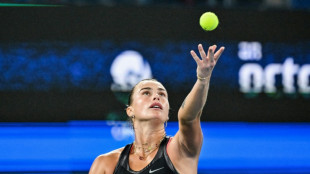 Sabalenka to face Kyrgios in 'Battle of Sexes' on December 28
Sabalenka to face Kyrgios in 'Battle of Sexes' on December 28
-
Experts call for global panel to tackle 'inequality crisis'
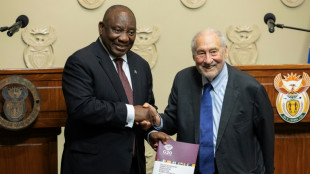
-
 Backed by Brussels, Zelensky urges Orban to drop veto on EU bid
Backed by Brussels, Zelensky urges Orban to drop veto on EU bid
-
After ECHR ruling, Turkey opposition urges pro-Kurd leader's release

-
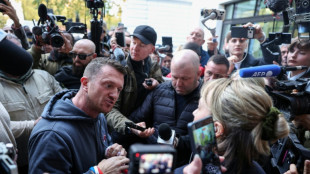 UK far-right activist Robinson cleared of terror offence over phone access
UK far-right activist Robinson cleared of terror offence over phone access
-
World on track to dangerous warming as emissions hit record high: UN

-
 Nvidia, Deutsche Telekom unveil 1-bn-euro AI industrial hub
Nvidia, Deutsche Telekom unveil 1-bn-euro AI industrial hub
-
Which record? Haaland warns he can get even better

-
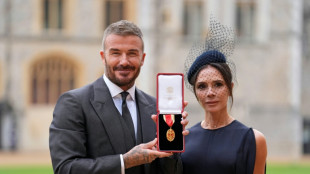 Football star David Beckham hails knighthood as 'proudest moment'
Football star David Beckham hails knighthood as 'proudest moment'
-
Laurent Mauvignier wins France's top literary award for family saga

-
 Indian Sikh pilgrims enter Pakistan, first major crossing since May conflict
Indian Sikh pilgrims enter Pakistan, first major crossing since May conflict
-
Former US vice president Dick Cheney dies at 84
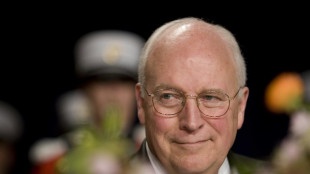
-
 Fiorentina sack Pioli after winless start in Serie A
Fiorentina sack Pioli after winless start in Serie A
-
Oscar-winning Palestinian films daily 'Israeli impunity' in West Bank

-
 Spain's Telefonica shares drop on dividend cut, net loss
Spain's Telefonica shares drop on dividend cut, net loss
-
Fierce mountain storms kill nine in Nepal
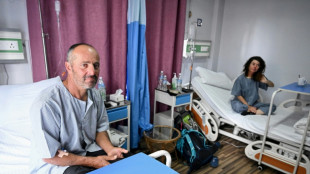
-
 Divisive Czech cardinal Dominik Duka dies at 82
Divisive Czech cardinal Dominik Duka dies at 82
-
Shein vows to cooperate with France in sex doll probe

-
 EU in last-ditch push to seal climate targets before COP30
EU in last-ditch push to seal climate targets before COP30
-
Finnish ex-PM Marin says her female cabinet faced torrent of sexism
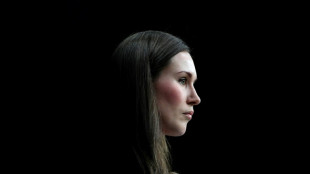

Ballet star and survivor Steven McRae says dance must change
After an almost super-human recovery from an injury, star dancer Steven McRae says the ballet world must take much better care of its artists.
As charted in the upcoming documentary "A Resilient Man", McRae thought his high-flying career as a principal dancer in London's Royal Ballet was over when he heard the horrific sound of his Achilles tendon snapping midway through a performance of "Manon" in October 2019.
It took months for McRae to walk again, but he was lucky: the Royal Ballet is one of the only companies in the world with a dedicated medical team.
"In the world of dance, injuries have always been seen as a sign of weakness," he told AFP. "You're injured, you're useless. Out. Next!"
It took a Herculean two-year effort, supported by his physios, for McRae to return to the stage and get back in peak form.
But the experience has radically changed his view of the ballet world.
- 'Go go go' -
McRae had unlikely origins in Australia.
He is the son of a mechanic and drag-racer, with his family having limited funds for a classical dance education.
But talent and determination ultimately led him to first prize at the world's biggest dance competition, in Lausanne, and a scholarship to the Royal Ballet School.
"None of it was handed to me on a silver platter, and anyone who has to fight for something then protects it," he said.
"In that fear of losing it all, you say yes to everything. You don't complain about anything. Just go go go."
McRae became one of the company's biggest stars, but he did it by pushing his body to extremes with little care for his physical and mental well-being, relying on a steady intake of painkillers to survive performances and being so burned-out that he felt emotionally numb when he came off stage.
Something had to give, and, aged 35, it was his Achilles.
"Now I know I was dangerously underweight and not as powerful as I thought," he said.
"And the culture of ballet means I was surrounded by these alien bodies... it didn't matter how small or ill I looked, there were always many more people that looked worse than me."
- 'Stop torturing children' -
McRae is 10 kilos heavier than before his injury thanks to the muscle he has acquired in the gym. He sees that added strength as common sense and wants ballet to give up its obsession with slender figures.
"The reality is our profession is a visual art form so there's a certain look that complements what we're trying to create," he said.
"But over the years it's become so warped. There's this preconceived idea of that image... but who is this ballet god telling everybody what it should be?"
He said ballet academies often judge children more on appearance than skill.
"That's wrong... we need to be looking at them as young artists, as individuals. Not 'How long are their legs? How thin are they?'"
Even companies with physios and gyms are still not making time in weekly schedules for dancers to use them, he added.
"Now we have a medical team, we are receiving a lot of new information from sports scientists about our physical and mental well-being and how it's correlated," he said.
"Now it's time to respond. It doesn't have to be huge -- just small, incremental changes. We can still achieve excellence without sacrificing our entire world."
Stephane Carrel, the director of "A Resilient Man", which will be released in Britain and elsewhere later this year, said he hopes the film will encourage change.
"It would be good to stop torturing children and ensure that dancing remains, above all, a pleasure," said Carrel.
Nonetheless, he said watching the extreme efforts of dancers helped motivate his own work.
"Trying to get a documentary made is extremely difficult... so to see Steve's fight, it helped me a lot. I told myself: I'm not giving up."
T.Ziegler--VB




